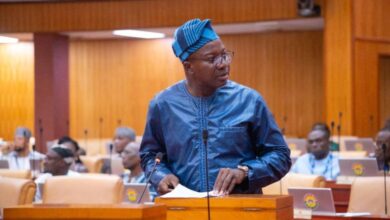How Africa Is Moving from Crypto Speculation to Payments

Cryptocurrency is gaining status as a highly volatile asset category across Africa and is becoming a potent means of payment for daily tasks. What started as an interest among merchants who sought to capitalise on market fluctuations is now a valid financial trend – a trend that is likely to change the way Africans remit, spend, and save money.
Some years passed, and discussions on digital possessions in cities such as Lagos, Nairobi, or Johannesburg centred on questions like when to purchase them and how high their prices might rise. The discussion is now shifting to the aspect of usability: how can cryptocurrency be used to remit money, shop, and trade goods across national borders?
The platforms, which previously concentrated on price speculation, are now developing physical payment infrastructure. As more citizens are no longer focusing on crypto prices today, people are discovering the utility offered by blockchain-based currencies in their daily lives.
The Emergence of Cryptocurrency Payments in Africa
Merchants and service providers in countries such as South Africa, Kenya, and Nigeria are now accepting crypto payments. Starting with supermarkets and moving to small cafes, digital assets are becoming as common as mobile money. To a large extent, this change is predetermined by a young, tech-friendly population and the increasing interconnectedness of crypto platforms with local fintech communities.
Binance, the world’s leading cryptocurrency exchange, has been at the forefront of this transition. The fact that it is expanding across African markets shows how innovation can be localised through global sites. Through simple wallet systems, peer-to-peer (P2P) trading opportunities, and merchant payment services, Binance has enabled millions of Africans to trade without relying on traditional banking institutions. This change is particularly vital in those areas where financial exclusion has been a long-term impediment to economic development.
The P2P marketplace of Binance has proven to be a crucial link between the digital and fiat economies in Nigeria. Small businesses and traders exchange their naira to buy and sell stocks and make payments across borders via the platform, converting them to stablecoins or Bitcoin. In South Africa, cryptocurrency has penetrated the retail sector through collaboration with partners, enabling users to pay with digital assets via QR codes. Such integrations are contributing to making cryptocurrency a more mainstream means of exchange, rather than a risky bet.
The Next Frontier: Why Payments?
The economic reality in Africa predisposes it to be an ideal test market for crypto-based payments. Inflation is prevalent in many countries at double-digit levels, accompanied by capital restrictions and the inaccessibility of foreign currency, which all hinder cross-border transactions, making them slow and expensive. A cheaper, faster, and more transparent alternative is provided by cryptocurrencies, particularly the stablecoins tied to the US dollar.
For many African freelancers, exporters, and small business owners, receiving payments from international clients through conventional banking systems is both costly and time-consuming. Crypto is a simpler alternative that places less reliance on intermediaries. In this regard, Binance has been instrumental, with convenient apps and education programs making it easy to make crypto payments in real-time.
Furthermore, the increasing use of stablecoins in African markets suggests that people are prioritising stability over speculation. These assets enable users to hold value digitally without the volatility associated with conventional cryptocurrencies. In conjunction with Binance’s user protection protocols and local language support, stablecoins are gaining entry to mainstream crypto adoption.
Informal to Institutional Adoption
Cryptocurrency payments are also beginning to be realised as an opportunity in governments and central banks in Africa. As the clarity of regulations has not yet been established, the debate has shifted from bans to a framework for regulation. Policymakers are starting to realise that digital currencies can augment, and not disrupt, national payment systems.
Binance has been working proactively with the regulators to enhance responsible innovation. The company has contributed to building trust between users and policymakers by focusing on compliance, transparency, and consumer protection. Its geographical experiences and educational interventions have played a crucial role in bridging the knowledge gap between classical finance and blockchain.
In Kenya, local businesses can utilise Binance Pay as a means of paying international suppliers, thereby avoiding the delays and high costs associated with other forms of banking. In Ghana, cross-border merchants are experimenting with stablecoin payments, which enhances liquidity for small businesses. The latest changes demonstrate that the crypto revolution in Africa is no longer about holding tokens in your hands, but about putting them to work.
Furthermore, Binance Africa hosts insightful market reviews in the form of live events; For example, on October 7, 2025, the live event featured expert insights from Mark Brain, Binance Captain, and Joseph Hills, Binance Angel, further promoting institutional adoption within the region.
Outlook: The Revolution in Payments
The shift of Africa from crypto speculation to payments is an indication of an even larger change in world finance. Regulatory uncertainty and price fluctuations are just some of the issues, but the trend is apparent. More Africans are turning to crypto not as a get-rich-quick tool, but as a solid business, family, and digital economy solution.
Binance’s ongoing investment in the region is expected to continue accelerating this trend. The platform is still establishing a solid foundation for sustainable adoption, with an emphasis on accessibility, education, and compliance. With remittance solutions, merchant solutions, and stablecoins becoming increasingly popular, Africa may soon emerge as a global leader in crypto utility.
In the end, the hypothetical Africa crypto story is possibly drawing its final curtain. Still, an even more significant narrative is just commencing; one in which cryptocurrency is as helpful as it is potent.
Disclaimer: This article is for informational purposes only and does not constitute financial advice. Always conduct your own research before making any investment or financial decision in cryptocurrency.





